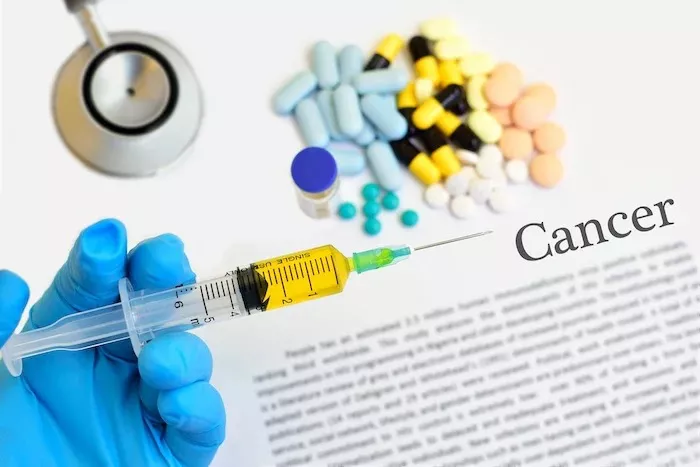Mango, a delectable tropical fruit enjoyed by many, can sometimes trigger allergic reactions in individuals sensitive to its proteins. Managing mango allergies requires a comprehensive understanding of the causes, symptoms, and diagnostic methods. In this guide, we will delve into the intricacies of mango allergies and provide practical steps for effective treatment.
Introduction to Mango Allergy
Mango allergy is an immune system response to proteins found in the fruit. The primary allergens responsible for reactions are proteins such as profilin, lipid transfer protein, and Pru p 3.
Causes of Mango Allergy
Protein Sensitivity: Individuals prone to mango allergies are often sensitive to specific proteins present in the fruit. Profilin, a panallergen found in various fruits and vegetables, is one of the key culprits.
Cross-Reactivity: Cross-reactivity may occur when an individual allergic to birch pollen experiences allergic reactions to mango due to similarities in protein structures.
Symptoms of Mango Allergy
Skin Reactions:
Mango allergy commonly manifests through skin symptoms, including itching, redness, and hives. In severe cases, it can lead to eczema or contact dermatitis.
Respiratory Symptoms:
Respiratory symptoms such as sneezing, nasal congestion, coughing, and shortness of breath may occur when mango proteins are inhaled, particularly during the fruit’s cutting and peeling.
Gastrointestinal Issues:
Some individuals may experience gastrointestinal symptoms like nausea, vomiting, abdominal pain, and diarrhea after consuming mango.
Anaphylaxis:
In rare instances, mango allergies can lead to anaphylaxis, a severe and potentially life-threatening allergic reaction characterized by rapid onset and involving multiple organ systems.
Diagnosis of Mango Allergy
Medical History and Symptoms Analysis:
An accurate diagnosis begins with a detailed medical history, focusing on allergic reactions to mango or related foods. Thoroughly analyzing the nature and timing of symptoms is essential for identifying potential triggers.
Skin Prick Test:
Skin prick tests involve applying a small amount of mango extract to the skin and then pricking the surface to introduce the allergen. Positive reactions, such as redness or swelling, indicate sensitivity.
Blood Tests:
Blood tests measure specific IgE antibodies to mango proteins. Elevated IgE levels indicate the presence of an allergy, helping confirm the diagnosis.
Oral Food Challenge:
In controlled settings, healthcare professionals may conduct oral food challenges to observe and evaluate the patient’s reaction to mango ingestion. This method provides definitive confirmation but requires careful monitoring.
Management of Mango Allergy
Avoidance of Mango:
The most effective way to manage mango allergies is to avoid the consumption of mango in all forms, including raw fruit, juices, and processed products containing mango derivatives.
Cross-Reacting Foods:
Individuals with mango allergies should be aware of cross-reactive foods, such as other fruits and vegetables containing similar proteins. This knowledge helps in preventing accidental exposures.
Label Reading:
Thoroughly reading food labels is crucial to identify and avoid products that may contain hidden mango ingredients or derivatives. Manufacturers may use terms like “natural flavoring” or “fruit extract,” which could include mango.
Allergy Action Plan:
Developing an allergy action plan with a healthcare professional is essential for those at risk of severe reactions. This plan should include the use of epinephrine injectors and clear instructions for emergency situations.
Treatment of Mango Allergy Symptoms
Antihistamines:
Antihistamines are commonly used to relieve mild allergic symptoms, such as itching and hives. Non-drowsy formulations are preferred for daily use.
Topical Steroids:
For skin reactions, topical steroids can provide relief by reducing inflammation and itching. These should be applied under the guidance of a healthcare professional.
Bronchodilators:
Individuals experiencing respiratory symptoms may benefit from bronchodilators to alleviate breathing difficulties. Consultation with a healthcare provider is necessary to determine the appropriate medication.
Epinephrine for Anaphylaxis:
In cases of severe reactions or anaphylaxis, prompt administration of epinephrine is critical. Individuals with a known mango allergy should carry an epinephrine auto-injector at all times and be trained on its proper use.
Emerging Therapies and Research
Immunotherapy:
Ongoing research explores the potential of immunotherapy to desensitize individuals with mango allergies. This approach aims to modify the immune response, allowing for controlled exposure without triggering allergic reactions.
Genetic Studies:
Genetic studies are unraveling the genetic factors influencing mango allergies. Understanding the genetic basis of allergic reactions can lead to personalized treatment approaches and improved management strategies.
Conclusion
Managing mango allergies involves a multifaceted approach, combining avoidance strategies, symptom management, and, in severe cases, emergency interventions. A comprehensive understanding of the causes, symptoms, and diagnostic methods is crucial for individuals and healthcare professionals alike. As research progresses, new therapeutic avenues may emerge, offering hope for more effective treatment options. Ultimately, the key to successful management lies in education, awareness, and collaboration between patients and healthcare providers.
[inline_related_posts title=”You Might Be Interested In” title_align=”left” style=”list” number=”6″ align=”none” ids=”5843,5788,5625″ by=”categories” orderby=”rand” order=”DESC” hide_thumb=”no” thumb_right=”no” views=”no” date=”yes” grid_columns=”2″ post_type=”” tax=””]
































